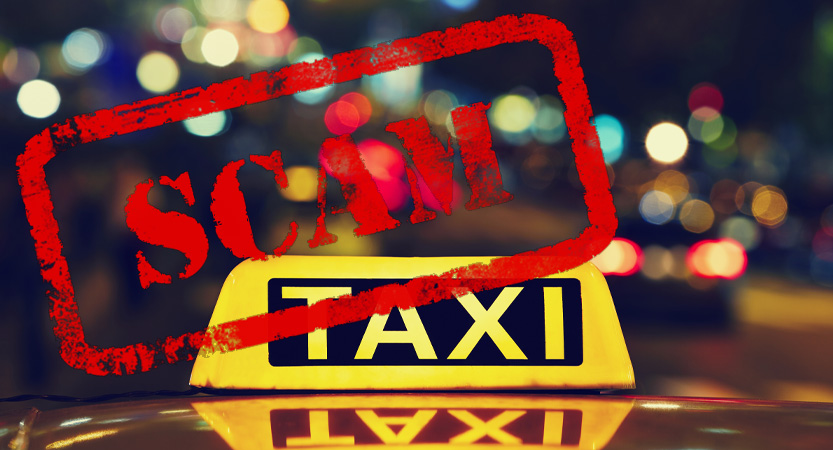Scam | Broken Meter
The ‘meter is broken‘ is the classic travel scam. Bar none, this is by far the most common scam I have encountered on my travels around the world on every continent, sans Antarctica .
We’ll breakdown how the scam works and how to protect yourself from getting scammed.
Broken Meter: How It Works

You hop into a taxi and tell the driver where to go. As soon as you start on your way, you notice that taxi meter hasn’t been turned on. When you inquire about this, the driver tells you that the meter is broken. When you arrive at your destination the total fare is way beyond what it should be.
Alternatively, the driver might outright refuse to use the meter or tell you that it would be cheaper without the meter. In the later, the driver might try to appear overly friendly and ‘helpful’ in order to persuade you.
These broken meter scams tend to occur close to tourist hot spots, train and bus stations, and airports. That being said, taxi drivers are usually very opportunistic. As soon as they surmise that you’re from out of town, they might try to pull this scam on you.
How to Avoid The Broken Meter Scam

There are a few ways to avoid this scam.
For starters, it pays to do a bit of research before you travel somewhere new. Research the names of legitimate taxi companies and stick to those if at all possible. Fake taxis are more of a problem in the developing world, but black taxis can pop up in Europe and other countries you wouldn’t expect.
When you’re already on the ground, it’s a good idea to try and feel out a driver first. Before getting into a taxi, directly tell the driver you want them to use the meter. If they refuse, move on to another taxi. Keep in mind that if you’re in a tourist hot spot, a shady taxi driver will wait for a rube.
Pro Tip: Before hailing a taxi, ask around what the average fare should cost. If you’re in a station, ask at the help desk. I’ve stopped passerby on the street. Most people will help tourists.
If you’re already in the taxi and have just started driving; insist the meter gets turned on. If the driver refuses, tell them to pull over. You’ll be surprised how fast that broken meter starts working in this situation. Drivers would rather take an honest fare than no fare at all.
What To Do if You’ve Fallen For This Scam

If you have arrived at a destination only to then realize you are being scammed, you have a few options:
- Pay what the driver is asking
- Negotiate a fairer price
- Refuse to pay anything
➣Pay
You could just accept that you got scammed, pay the ridiculous price they are asking, and move on with you life. Hopefully a little wiser. Of course, this won’t feel good. No one likes getting scammed.
➣Negotiate
Your second option is trying to negotiate. If you followed my pro tip above then you should have some idea how much the trip should have costed. You will most likely be dealing with someone who’s not a native English speaker, and they will mostly become far less fluent in bridging the language gap.
➣Stiff The Driver
Lastly, you can outright refuse to pay any money to the driver. This is, of course, going to cause a lot of friction and the situation could turn violent. Obviously, you want to avoid things become violent. This rarely works out in the tourist’s favor. If there are other taxi drivers in the area they might join in and gang up on you. As well, it’s doubtful locals will help a foreigner in this type of altercation.
Before considering this option, make sure the driver doesn’t have any of your belongings in the trunk or front seat. A taxi driver can take your suitcase ‘hostage’ if you refuse to pay and that’s a powerful bargaining chip.
Keep in mind, two wrongs don’t make a right. At the end of the day, I still try to see these drivers as people just trying to make a living. I don’t want to rip them off. I just want to pay a fair price.
Beyond that, there really isn’t much you can do. You can photograph the license plate, taxi registration card, and/or the driver. You can then report them to the tourist police, but that’s going through a lot of trouble for a minor scam.
Want more information about scams and travel advice? Check out our TRAVEL TIPS PAGE.


